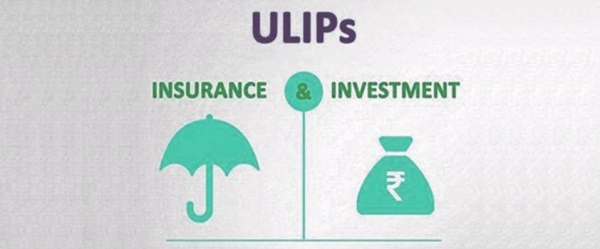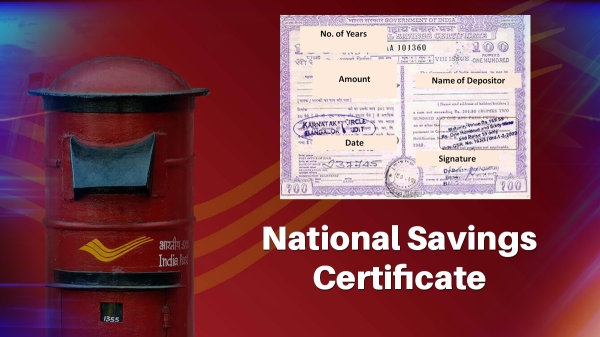Best Tax Saving Investment & Schemes for FY 2023-24
Tax saving instruments and sections therein: 1. Fixed Deposit You can save tax by investing in tax saver Fixed Deposits which can fetch you tax ded
- by B2B Desk 2023-08-16 10:56:16
Tax saving is an important part of financial planning. An intelligent tax planning strategy can serve the dual objective of helping people reach their financial goals and save tax in the process
Here is a list of some of the best tax saving investment options and plans for 2022 that can help individuals maximize tax benefits:
| Sr No. | Tax Saving Investment Options | Tax Benefit Under Section |
| 1 |
Life Insurance |
Section 80C (Premium) Section 10(D) (Death / Maturity) |
| 2 |
Pension Plans |
Section 80CCC(sub-section under Section 80C) |
| 3 |
Health insurance or Mediclaim |
Section 80D |
| 4 |
NPS |
Section 80CCD |
| 5 |
Tax-saving mutual funds |
Section 80C Section 10(D) (Death/Maturity) |
Tax saving instruments and sections therein:
1. Fixed Deposit
You can save tax by investing in tax saver Fixed Deposits which can fetch you tax deduction under section 80c of the Indian Income Tax Act, 1961. You can claim a maximum deduction of Rs 1.5 lakh by investing in tax saving investments - fixed deposits. There is a lock-up period of 5 years for such as FDs and the interest earned is taxable. The interest rate usually ranges from 5.5% to 7.75%.

2. PPF (Public Savings Plan)
Public Provident Scheme is a popular tax saving investments vehicle. For a long-term savings and investment product, you need to open a PPF account at the post office or designated branches of private and public sector banks to start with. Contributions to a PPF account earn a guaranteed rate of interest. You can claim deductions under Section 80C of up to Rs 1.5 lakh in a financial year on these deposits.

3. ULIP (Unit Linked Insurance Plan)
ULIPs are long-term tax saving investment products that allow you to choose equity funds, debt funds, or both. ULIPs give you the flexibility to switch between funds in sync with your financial goals. By investing in a ULIP, you can save taxes under Sections 80c and 10(D10) of the Income Tax Act of 1961.

4. National savings certificate
National Savings Certificates are a savings bond scheme that primarily encourages small to mid-income investors to invest while saving on income tax under Section 80C. If you have a savings account at a bank or post office, you can buy NSC certificates in e-mode, as long as you have access to online banking. An investor can purchase NSCs for himself or on behalf of a minor or with another adult as a joint account.

5. Senior Citizen Savings scheme
The Senior Citizen Savings Scheme (SCSS) is a government-sponsored savings instrument for individuals above the age of 60 which gives a stable and secure post-retirement income with comparatively substantial returns.
The principal amount deposited into the SCSS account is eligible for tax deductions under Section 80C of the Income Tax Act, 1961, up to a limit of Rs. 1.5 lakhs. However, this exemption only applies under the current tax system. It is not allowed if an individual chooses to file tax returns under the new system introduced in Union Budget 2020
However, the interest received is taxed as per the applicable slab of the concerned taxpayer.

6. Life insurance
Life insurance plays an important role in one's financial portfolio by providing security to one's family in case of any eventuality. This makes it the primary responsibility of the breadwinner to purchase life insurance as soon as possible for the safety of the family.
Life insurance, be it traditional (endowment) or market-linked (ULIP), offers tax benefits to policyholders on the premiums paid.
There are various life insurance plans such as:
Regardless of their nature, life insurance plans offer tax benefits to policyholders.
Premiums paid for life insurance are covered under Section 80C of the Income Tax Act to a maximum of Rs 1.5 lakh. Proceeds on death/maturity are tax-free under Section 10(D). If the policy is surrendered or terminated within five years, the claimed deductions are added to income and taxed accordingly.
-
Term plans
-
Endowment plans
-
ULIPs or unit-linked plans
-
Money Back Plans

7. Pension plans
Pension plans are another form of life insurance. They serve a different end objective than other insurance plans, such as term plans and endowment plans, which are called protection plans. While protection plans aim to financially secure an individual's family on his death, pension plans aim at providing for the individual and his family if they continue to live.
Contributions towards pensionare are covered under Section 80CCC (sub-section under Section 80C) of the Income Tax Code. The aggregate limit of deduction under all sub-sections of section 80c cannot exceed Rs 1.5 lakhs.
On maturity, 1/3 of the pension amount accrued is tax-free and the remaining 2/3 is treated as income and taxable at the marginal tax rate. The amount is tax-free upon the death of the beneficiary.

8. Medical insurance or Mediclaim
Health insurance or Mediclaim, as it is more commonly known, covers expenses incurred from an accident/hospitalization. Mediclaim also covers pre- and post-hospital expenses, depending on the sum insured
Health insurance offers tax benefits under Section 80D. Insurance premium of up to Rs 20,000 for senior citizens and Rs 15,000 for others qualifies for tax benefits. If the policyholder pays Rs 15,000 as a premium for his own policy and Rs 20,000 for his parent, a senior citizen, he can claim a tax advantage of Rs 35,000 (Rs 15,000 + Rs 20,000). Maturity value is tax- free for the amount received under critical illness insurance policies

9. NPS
The NPS or New Pension Scheme is regulated by the Pension Funds Regulatory and Development Authority - PFRDA. Any Indian citizen between the ages of 18 to 60 can participate. It is very profitable as the fund management fees are low. Fund managers manage funds in three separate accounts with different asset profiles, ie. Equity (E), Corporate bonds (C), and government securities (G). Investors can choose to manage their portfolio actively (active election) or passively (auto choice).
Contributions to NPS are covered under Section 80CCD of the Income Tax Code. The total limit of deduction under this section with Sections 80C and 80CCC cannot exceed Rs 1.5 lakh.
Given the range of options, NPS is particularly beneficial for people, with varying risk appetites, who are looking to set aside money for retirement.

10. Tax saving investment funds
Investments in tax-saving mutual funds, also known as equity-linked savings plans (ELSS), qualify for tax benefits. Tax saving mutual funds invest in the stock markets, among other assets, and are best suited for investors with a medium to high-risk appetite. Investments are locked for three years.
Investments in tax saving mutual funds are covered under Section 80C of the Income Tax Act up to a maximum of Rs 1.5 lakh. Proceeds on death/maturity are tax-free under Section 10(D).
How to plan your tax savings investments for the year?
April 1st is the beginning of tax saving season for both salaried and non-salaried taxpayers. The purpose of a sound tax saving investment should not only be to provide tax exemption but also to earn tax free income.
Instead of waiting until the end of the tax year and opting for ad-hoc tax-saving instruments, it would be better to start investments in the first quarters of the tax year so that taxpayers have time to plan their investments and benefit from maximum returns. Factors such as safety of funds, liquidity, and size of returns are all things to consider when zeroing on the right tax saving investment plan.
Most tax saving investment plans fall under Section 80C of the Income Tax Act, which makes the taxpayer eligible for exemption up to a maximum of Rs 150,000. Investors may choose from options such as ELSS (equity-linked savings plan), public provident fund, life insurance, national savings plan, fixed deposits and bonds.
Tax savings investment plans for young unmarried taxpayers and couples with single income
For people between the ages of 20s or early 30s, single or married with only one person contributing towards household expenses, the most apt tax saving options are:
1. Equity Linked Savings Schemes (ELSS)
2. Set aside at least 20% of your annual income for market-linked investment options with EEE benefits
3. Unit Linked Insurance Plans (ULIP)
4. Public Provident Fund (PPF)
5. Term insurance coverage with an insured amount equal to 15 to 20 times of your annual income.
What Are Income Tax Savings Plans for parents with single income?
If your family is single-income household with a child, then you need to be careful with your financial plans to save on taxes and achieve the goals for your family and children.
Plans to choose from include:
1. At least 20% of your annual income must go into market-linked investment options, which offer EEE benefits. You can choose from Unit Linked Insurance Plans (ULIP), Equity Linked Savings Plans (ELSS), Child Plans and more.
2. Tax exemption of up to Rs 1.5 lakh under section 80c
3. Term insurance coverage with an insured amount equivalent to 15 to 20 ties of your annual income.
4. Public Provident Fund (PPF)
In addition, children's tuition fees under 80 C can be claimed. Any interest on an education loan for funding your child's higher education is fully deductible under Section 80E. Up to Rs 1 lakh more can be saved under section 80D
Pension funds shouldn't be ignored and at least 10% of the annual income must be invested in the national Pension Scheme and the like.
What are the Income Tax Saving Plans for Double Income Parents?
A married couple with dual incomes can claim more than Rs 8.5 lakh in deductibles with investments and insurance. Options to consider include:
1. Up to Rs 3 lakh can be saved under 80C
2. Opt for term insurance that covers an individual with an insured amount equal to 15 to 20 times your annual income
3. At least 20% of your annual income must go into market-linked investment options, which offer EEE benefits. You can choose from Unit Linked Insurance Plans (ULIP), Equity Linked Savings Plans (ELSS), Child Plans, and more.
4. Public Provident Fund (PPF)
5. Invest at least 10% of your household income in a retirement fund such as the National Pension Scheme or pension schemes by HDFC Life.
Other tips for providing the best for your family
1. Parents can claim the school fees
2. Save up to Rs 2 lakh under section 80d
3. Start investing in a child plan
4. For additional tax savings, you can invest in a property and avail of savings on home loan interest of up to Rs 4 lakh
5. Consider whether you want to invest jointly with your spouse or individually because both spouses can only claim the amount they paid as interest on the home loan.
6. Do not forget to purchase medical health insurance coverage for yourself, your spouse, and your children.
Tax savings investments for senior citizens and Retired Persons
After retirement, there should be a steady flow of funds to manage your regular expenses, as there is no monthly salary flow into your account. So what are the options for the elderly?
1. Senior citizens can opt for annuity schemes, which ensure a regular flow of money into their accounts and also allow them to save on taxes. One such scheme is the Government's Senior Citizens Savings Scheme, which can be used by people over 60 at a post office or bank. Aside from the tax benefits under Section 80c, SCSS has an early withdrawal advantage.
2. Those in their golden years can opt for special annuity products offered by insurers such as the new HDFC Life Immediate annuity plan, which offers various annuity options.
Unit Linked Insurance Plans (ULIP) are a good option for generating retirement funds because they allow relief of up to Rs 1.5 lakh on premiums paid under section 80c, and the ability to withdraw income tax-free proceeds at maturity under Section 10D.
Also Read: Apple supplier Foxconn begins iPhone 15 production in India
POPULAR POSTS
Best Silver Investment Platforms for 2025: From CFDs to Digital Vaults Explained
by Shan, 2025-10-23 12:22:46
Best Investment Plans in India for 2025: A Complete Guide to Grow and Protect Your Wealth
by Shan, 2025-09-18 10:20:46
Which venture capital firms are the most active in funding Indian startups in 2025
by Shan, 2025-08-06 10:42:11
Top 5 Apps to Buy Digital Gold in India (2025): Safe, Simple & Secure
by Shan, 2025-08-01 10:24:51
10 Highest Dividend Yield Stocks in August 2025
by Shan, 2025-07-28 09:31:02
Exchange-Traded Fund (ETF): A Practical Guide to Smart Investing
by Anmol Chitransh, 2025-04-17 10:18:20
The Ultimate Guide to Commodity Trading: Strategies, Risks, and Opportunities
by Anmol Chitransh, 2025-04-02 07:06:01
RECENTLY PUBLISHED

Loan EMIs to Drop as RBI Slashes Repo Rate - Full MPC December 2025 Highlights
- by Shan, 2025-12-05 11:49:44

The Agentic Revolution: Why Salesforce Is Betting Its Future on AI Agents
- by Shan, 2025-11-05 10:29:23

Pine Labs IPO 2025: Listing Date, Grey Market Premium, and Expert Outlook
- by Shan, 2025-11-05 09:57:07

Top 10 Insurance Companies in India 2026: Life, Health, and General Insurance Leaders Explained
- by Shan, 2025-10-30 10:06:42

OpenAI Offers ChatGPT Go Free in India: What’s Behind This Big AI Giveaway?
- by Shan, 2025-10-28 12:19:11






 Subscribe now
Subscribe now 